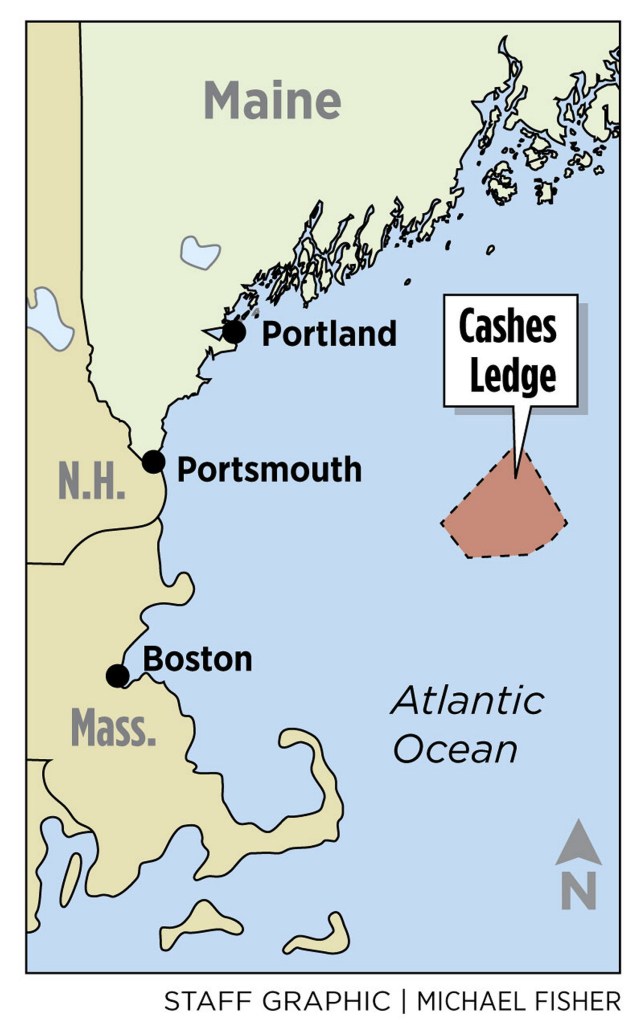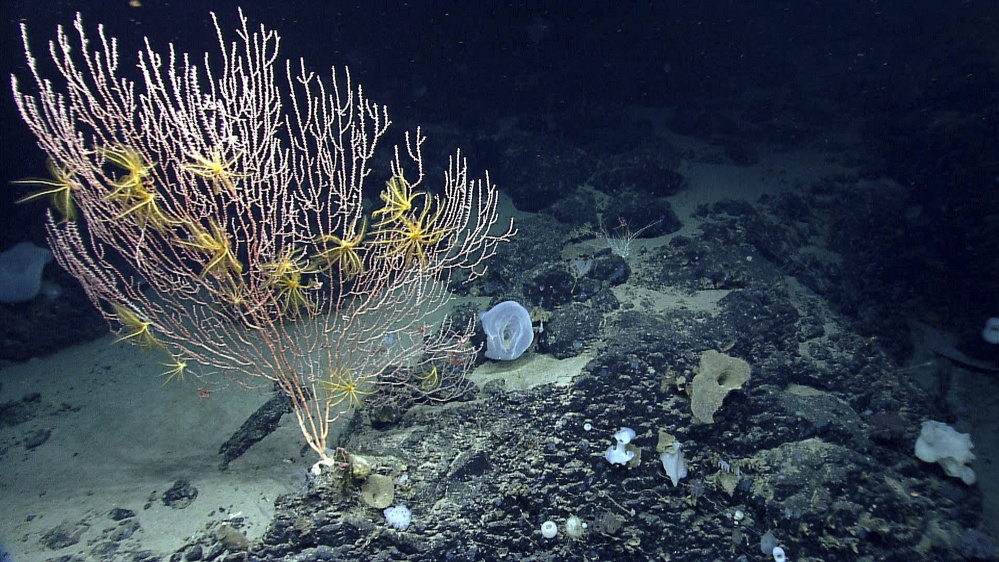PROVIDENCE, R.I. — Environmental conservationists aren’t giving up on trying to persuade the White House to designate an area in the Gulf of Maine as a national monument.
In the final months of President Obama’s term, they’re hoping he’ll protect an underwater mountain and offshore ecosystem in the gulf known as Cashes Ledge. They also want him to protect a chain of undersea formations about 150 miles off the coast of Massachusetts known as the New England Coral Canyons and Seamounts.
The White House Council on Environmental Quality said in March, and reiterated last week, that while the New England Coral Canyons and Seamounts area is under consideration, Cashes Ledge currently is not. There are no marine national monuments in the Atlantic Ocean.
PUSHBACK FROM FISHING INTERESTS
The Conservation Law Foundation, which has been leading the Cashes Ledge effort, is continuing its campaign. It says that a coalition of environmental groups collected more than 250,000 signatures between August 2015 and this month in support of protecting both areas.
“I think the door is really never shut at the White House for considering compelling projects for monument status,” said Peter Shelley, senior counsel at the foundation.
Robert Vanasse, executive director of the fishing advocacy group Saving Seafood, said environmental groups seemed to be “in denial and shock” after the White House first said it wasn’t considering Cashes Ledge in March.
“I think they overplayed their hand. They arrogantly seemed to think that they could dictate to the White House,” he said.
Vanasse said fishing interests are now taking the White House at its word that Cashes Ledge is off the table. The industry is already struggling with quota cuts and climate change.
GOVERNORS, FISHERMEN PUSH BACK
Commercial fishing groups oppose creating any marine monument in the Atlantic under the American Antiquities Act because the decision is left entirely to the president, Vanasse said. There are existing procedures to protect areas where the public participates in the process under the top law regulating fishing in U.S. oceans, the Magnuson-Stevens Fishery Conservation and Management Act, he said.
Massachusetts Gov. Charlie Baker and Maine Gov. Paul LePage, both Republicans, expressed reservations about a national monument in the Atlantic. The Atlantic States Marine Fisheries Commission, which manages fisheries in East Coast states, wants the White House to shoot down or dramatically limit the proposal for the Coral Canyons and Seamounts.
NOAA sought input on the idea of a marine national monument off New England at a town hall meeting in Providence, Rhode Island, in September. Hundreds of people attended. The fisheries commission chairman said in May that Obama should seek more public input.
“We’re not the fringe nutcases here,” Vanasse said. “It’s pretty much every non-environmentally subsidized fishery organization that is opposed to the use of the Antiquities Act to create marine monuments. The Magnuson-Stevens process works. It could be better, but it’s working.”
Nearly 50 organizations interested in environmental issues recently wrote to Obama about the Coral Canyons and Seamounts proposal. That letter doesn’t mention Cashes Ledge.
The letter focused on expressing strong support for the Coral Canyons and Seamounts because that is what’s being considered right now, said Sarah Chasis, director of the oceans program at the Natural Resources Defense Council. But, Chasis said, Cashes Ledge deserves permanent protection too.
CASHES LEDGE ‘A JEWEL’
Peter Baker, who directs U.S. Oceans, Northeast for the Pew Charitable Trusts, said in an ideal world, Obama would protect the Coral Canyons and Seamounts soon, and then the success of that monument designation could lead to protecting Cashes Ledge this year.
“If not, we’ll continue to fight on in future administrations to get Cashes Ledge protected,” he said. “It’s really a jewel and fits the mold for why you protect part of the ocean.”
Cashes Ledge, about 80 miles off the coast of Cape Ann, Massachusetts, is home to sharks, dolphins and sea turtles and provides habitat to endangered North Atlantic right whales. Much of it is restricted from fishing, although environmentalists believe it should be subject to permanent protections.
Shelley, of conservation foundation, said there’s no reason to leave Cashes Ledge behind, but sometimes these efforts take a long time.
“We’re in this for the long haul,” he said.
Send questions/comments to the editors.



